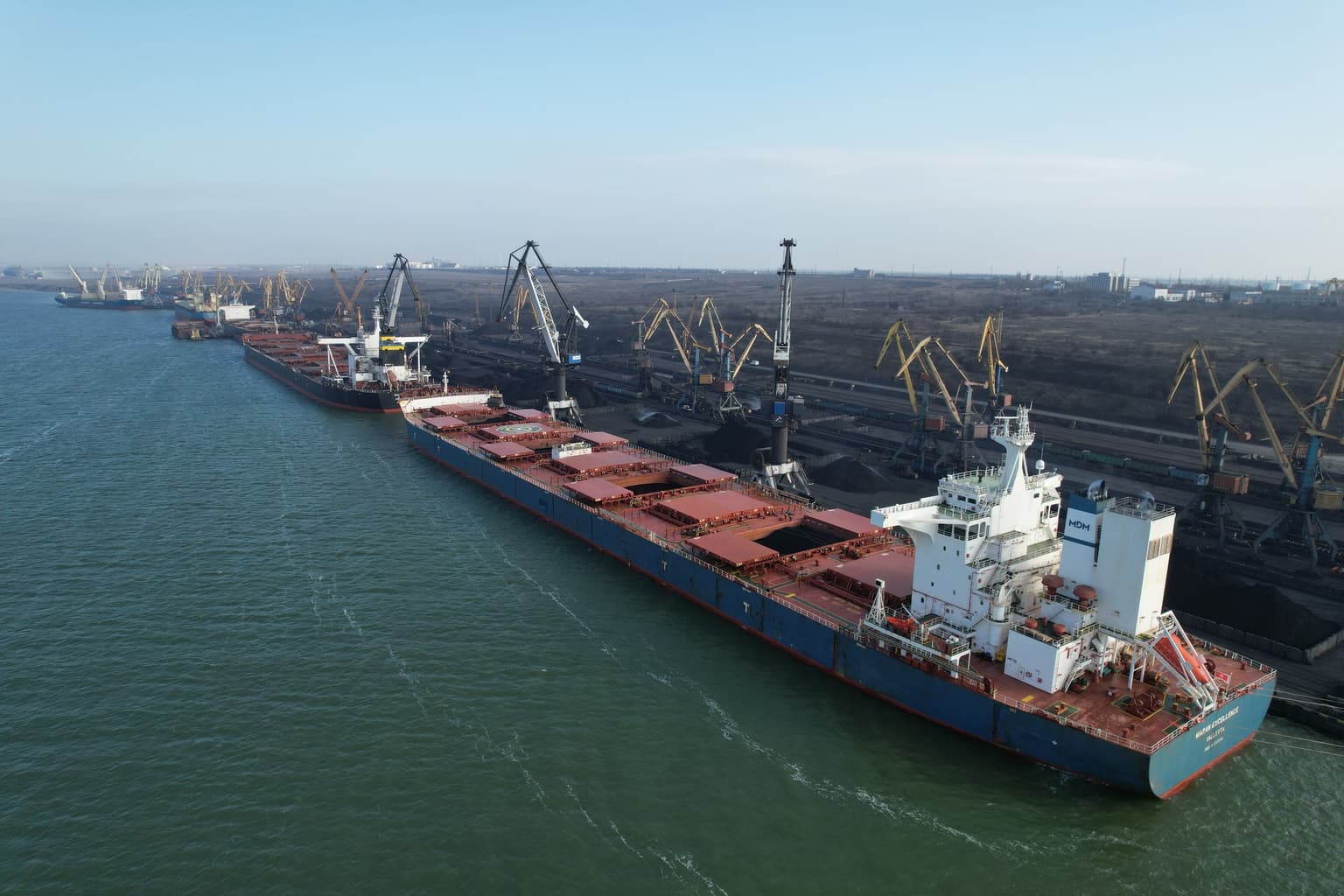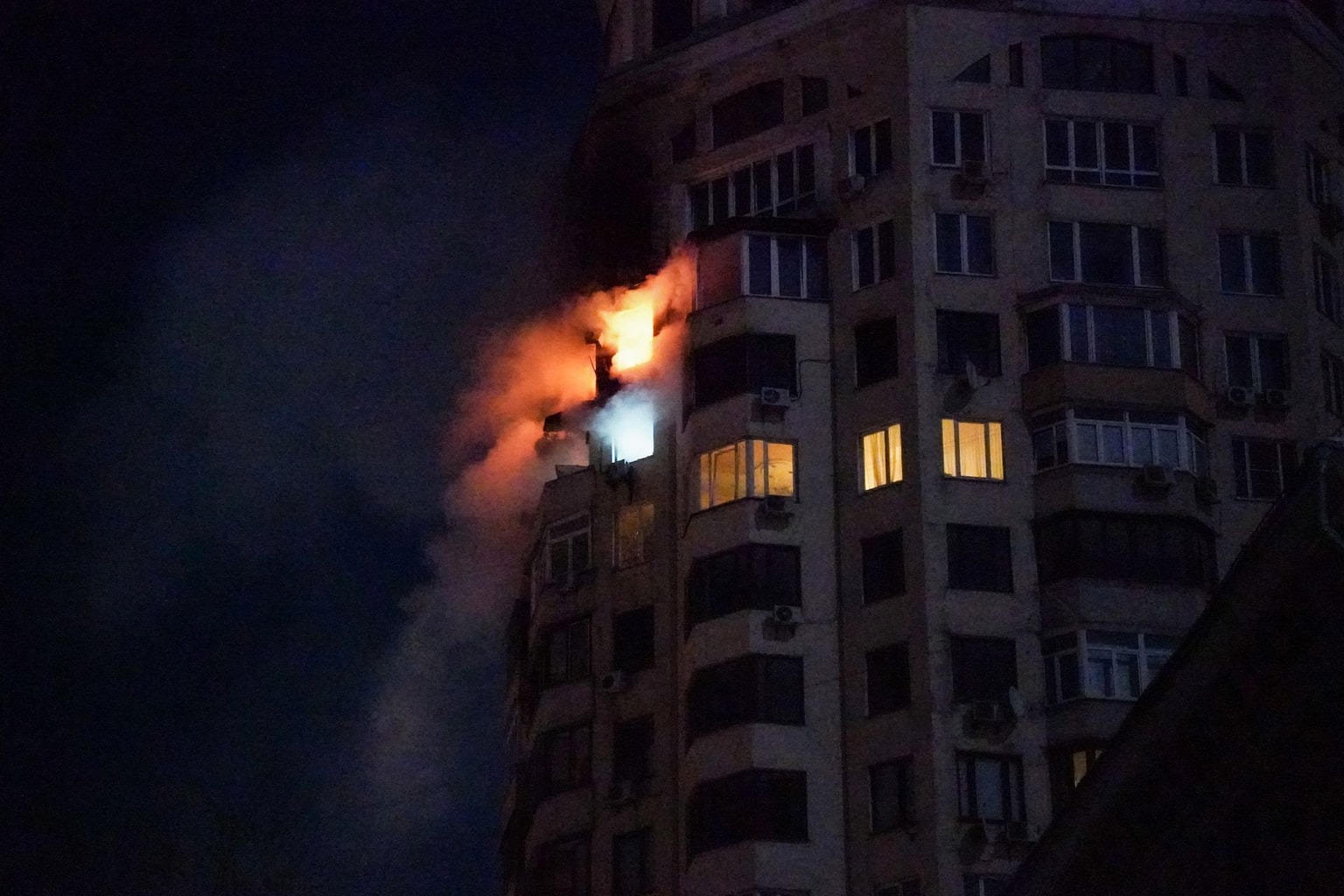The multi-million dollar Black Sea gas deal that doesn't exist

A UAE-linked company announced a $122 million investment project to build a terminal to store liquified natural gas (LNG) in Ukraine on July 18. The message raised eyebrows within the expert community, as a multimillion-dollar project near the front line doesn’t appear possible, nor does it appear to even exist.
The project proposes to build an LNG terminal in Ukraine’s southern Pivdennyi seaport, located on the Black Sea coast about 30 kilometers east of Odesa and only 60 kilometers from Ukraine’s southern front line in Kherson Oblast, where Russia’s war is actively raging.
The announced investment is led by LNG Terminal South, located at the Dubai Silicon Oasis, a free-trade zone established by the Dubai government, in the United Arab Emirates, with the company's trade license registered to a Russia-linked woman, whose name appears in the Panama Papers.
The new announcement echos a similar LNG project that was at the center of corruption scandals going back to 2012.
Former Energy Minister Oleksiy Orzhel described the project to build an LNG terminal in the Pivdennyi port as “something fantastic.”
Orzhel refused to discuss the project further. “I do not comment on science fiction,” he told the Kyiv Independent.
Questionable specs
A web page announcing a multimillion-dollar investment in war-torn Ukraine immediately caught the attention of Ukrainian media outlets.
According to the website, the estimated capacity of the terminal was said to be 200 million cubic meters of natural gas per year, importing liquefied gas primarily from Qatar. That is a drop in the bucket compared to the 19 billion cubic meters Ukraine needs for the winter, a figure quoted by DTEK CEO Maksym Tymchenko on July 21.
The Kyiv Independent reached out to the spokesperson of state-run gas monopoly Naftogaz, who declined to comment. The press office of the Gas Transmission Operator, Ukraine’s gas network, responded similarly.
“The Gas TSO of Ukraine did not receive any requests regarding the implementation of an LNG terminal project in Pivdennyi” the GTSO told the Kyiv Independent.
Besides an address in the Dubai Silicon Oasis technology park, LNG Terminal South doesn’t reveal the investors' identity.
However, the trade license published by Dubai’s authorities is under Elena Piskunova, whose Linkedin profile shows a career in the “hospitality, banking & financial service industry with exposure to mortgage and credit card business” and studies in St. Petersburg.
Piskunova’s name also appears in a more questionable listing, the Panama Papers. According to the International Consortium of Investigative Journalists, she is allegedly the shareholder of a company called Stiven Investment, a defaulted company registered in the Bahamas and linked to Russia.
The Kyiv Independent reached out to Piskunova but didn’t receive a response before publication.
The total amount of declared investments in the project is $122 million, a mere sum compared to the average cost of LNG terminals. In comparison, Poland’s Swinoujscie LNG terminal completed in 2015 and located in the western part of Poland’s Baltic sealine cost 950 million euros to build.
Even an LNG carrier tank ship costs on average $200 to $250 million, way over the price announced by LNG Terminal South. In addition, the issue of the passage of tankers with LNG through the straits controlled by Turkey has not yet been resolved.
Overall, the project seems fanciful at best, Oleksandr Kharchenko, the managing director of the Energy Industry Research Center told the Kyiv Independent.
“It’s just talking,” he said.
Crooked history
The LNG terminal project has been mired in scandals since the first time it was announced back in 2012 under then-president Viktor Yanukovych, ousted in 2014 by the EuroMaidan Revolution and now exiled in Russia.
In November 2012, then head of the state investment agency Vladislav Kaskiv signed a billion-dollar contract for the construction of the terminal with, as it turned out later, an odd business partner for this type of project: a Spanish ski instructor.
The deal had seemed to tie in Spain's Gas Natural Fenosa as the main investor in building an LNG terminal on the Black Sea Coast.
The terminal was supposed to have a total capacity of 10 billion cubic meters, estimated to cost $1.3 billion, and was expected to begin operating by 2018, according to the energy website Hydrocarbons Technology.
But the Spanish energy company swiftly denied joining any consortium.
Jordi Sarda Bonvehi, a 43-year-old ski instructor-turned-businessman from the Barcelona region, disowned it and vanished, leaving Ukrainian officials humiliated and embarrassed, according to a Reuters report from that time.
Bonvehi slipped away after the ceremony and left the country, his whereabouts unknown, although he was said to be in Spain.
He allegedly worked as a go-between in deals for Spanish companies and the Ukrainian authorities. Bonvehi was listed as general director of the Ukrainian branch of Grupo Hera, whose specialty is given as waste recycling.
Speaking by mobile phone with Reuters at the time, a man who identified himself as Bonvehi conceded he had not been authorized to sign for Gas Natural. “I thought I could sign it and then settle it with the company,” he said.
Gas Natural said Bonvehi did not work for the company and, in a statement on Nov. 28, suggested it might consider taking legal action.
U.S company Frontera Resources Corporation looked to revive the project in 2015, then-Prime Minister Arseniy Yatsenyuk said when the company and Naftogaz signed a memorandum of understanding to create such a terminal and import gas from Georgia.
The project went nowhere.
Ukraine is in dire need of new gas sources, as Russia keeps blackmailing Europe and reducing gas transit through the country in the backdrop of the war.
On June 20, Russia again tightened its grip on Europe’s gas supply, rejecting an offer from Ukraine to book more transit capacity to compensate for reduced flows through Nord Stream to Germany.
Russia’s gas monopoly Gazprom did not reserve extra space to ship gas to Europe through Ukrainian pipelines for July.
Supplies from Moscow may remain curbed for longer after Russia cut fuel shipments through the Nord Stream pipeline, its biggest gas route to the European Union, to just 20% of its capacity.
Still, there has been no development on an LNG terminal so far, and its prospects are still in limbo. The LNG South Terminal is no exception, Kharchenko insisted.
“This project doesn’t have any way for implementation,” he said.










